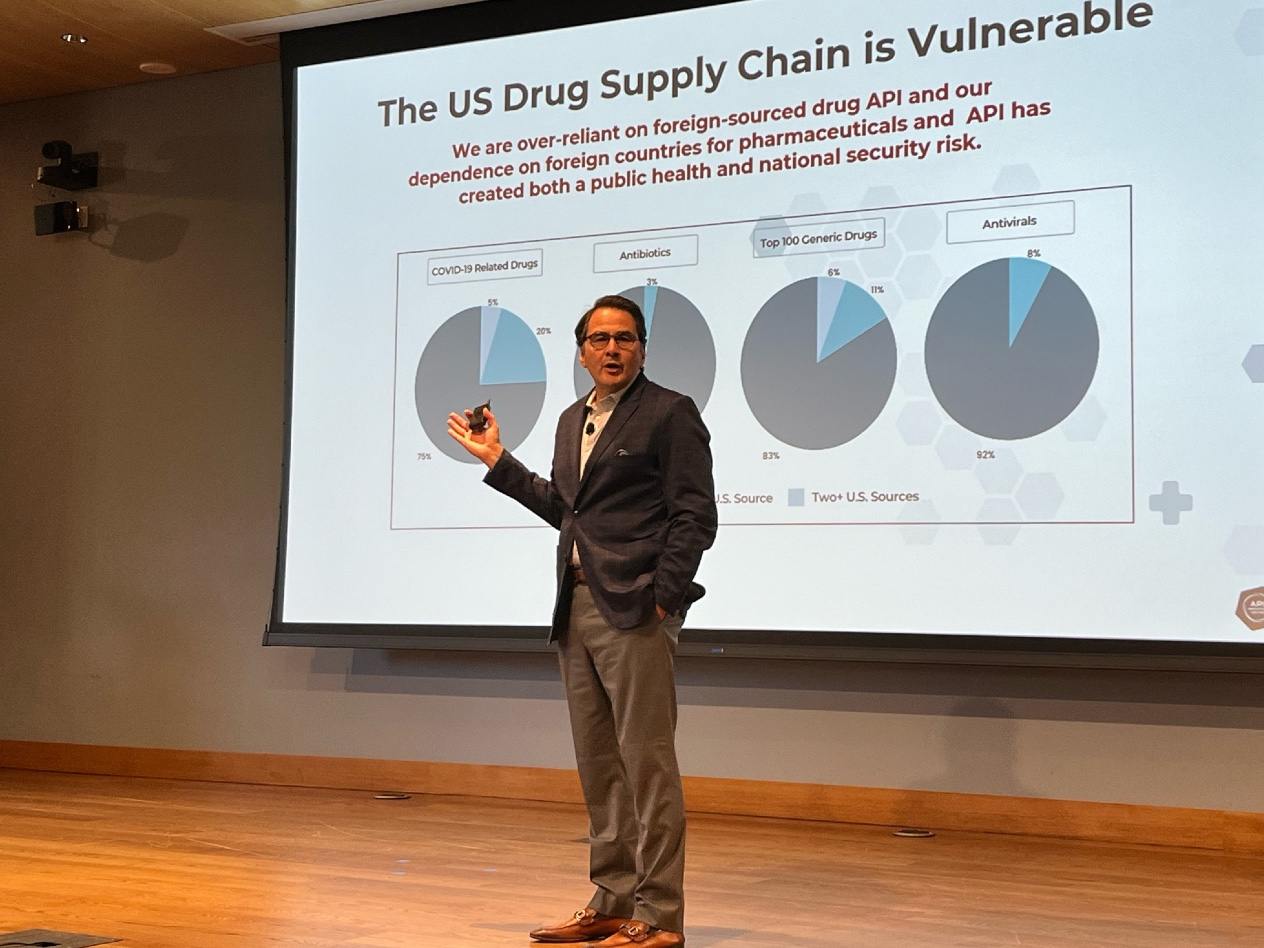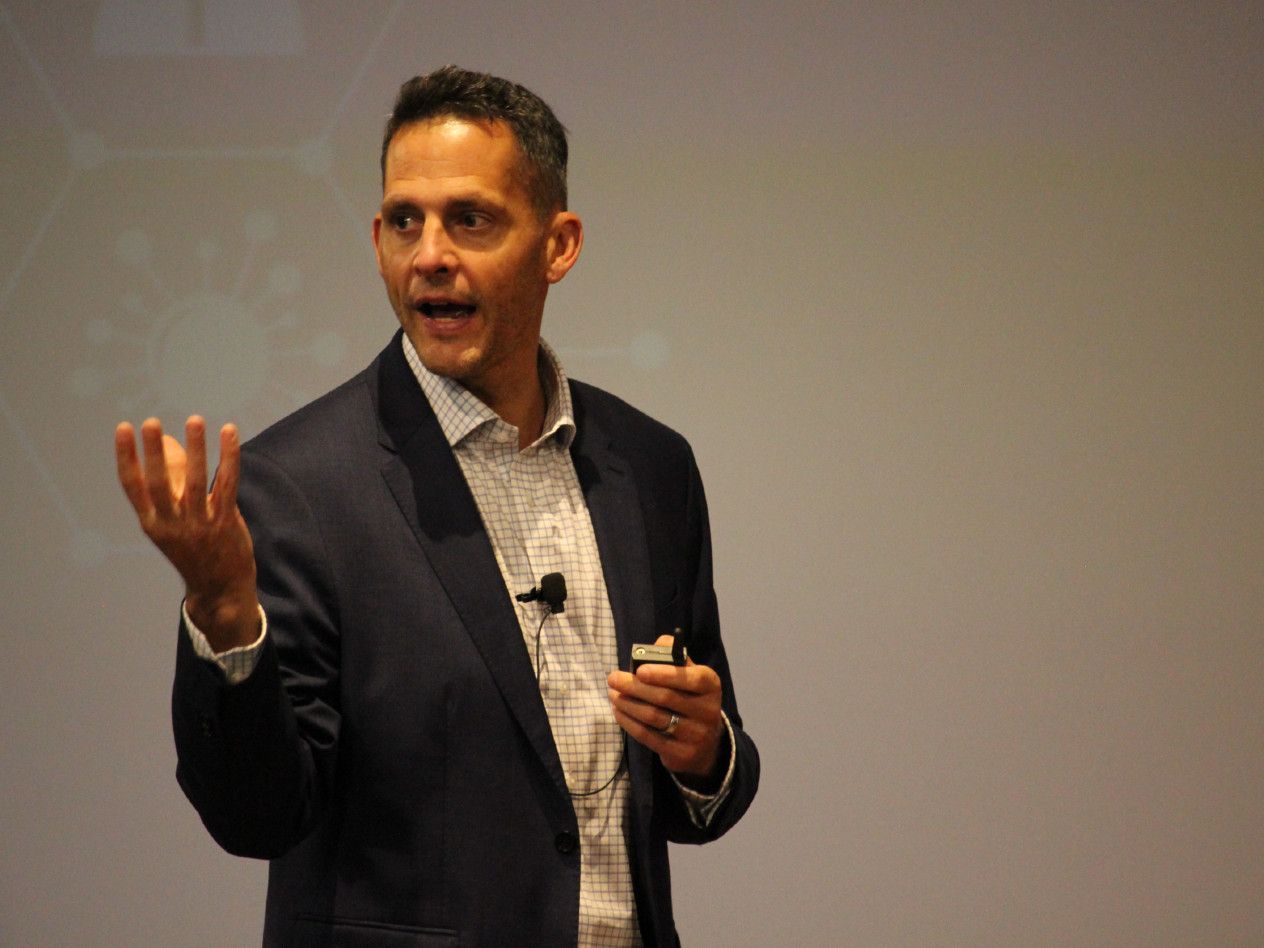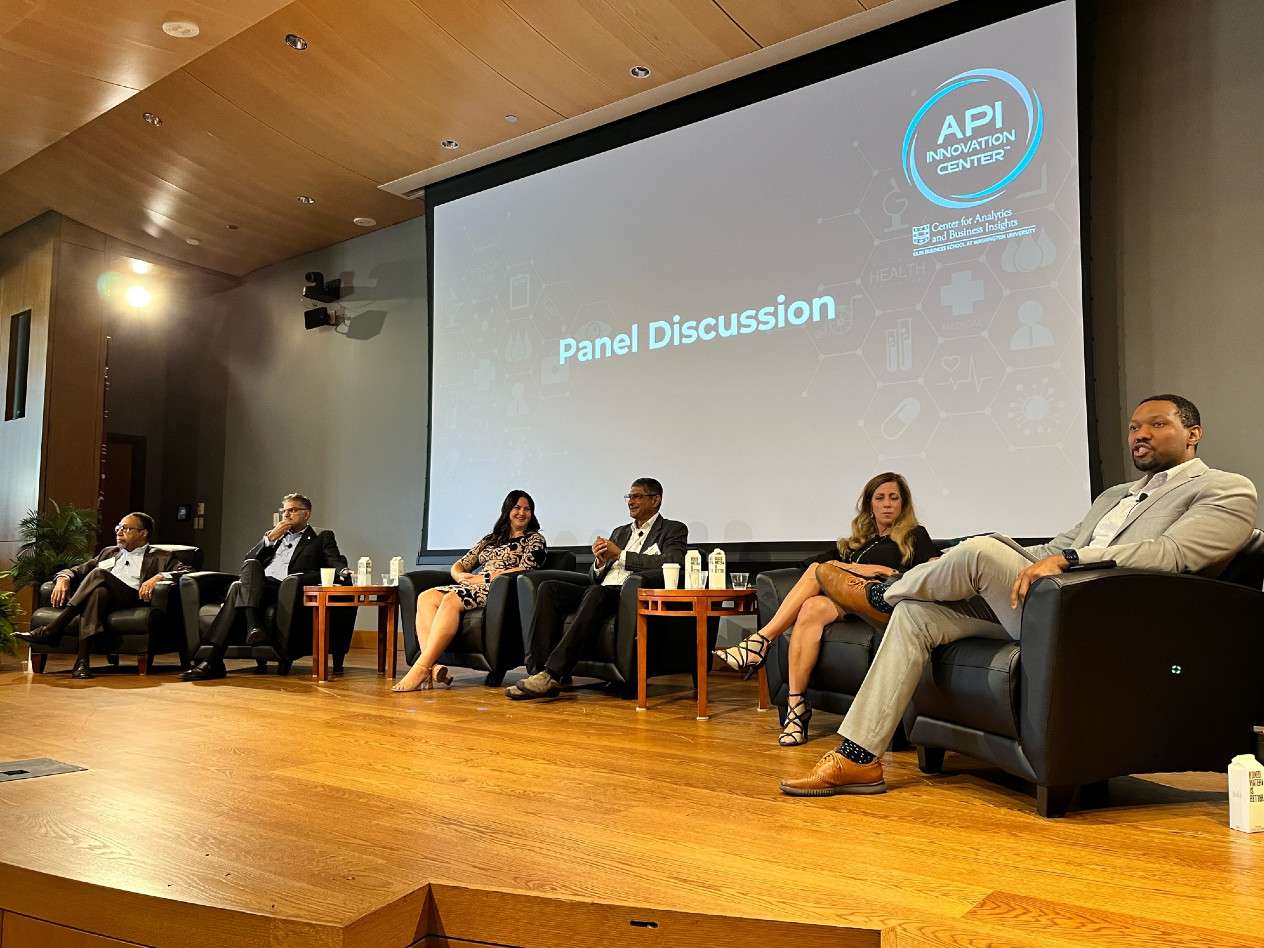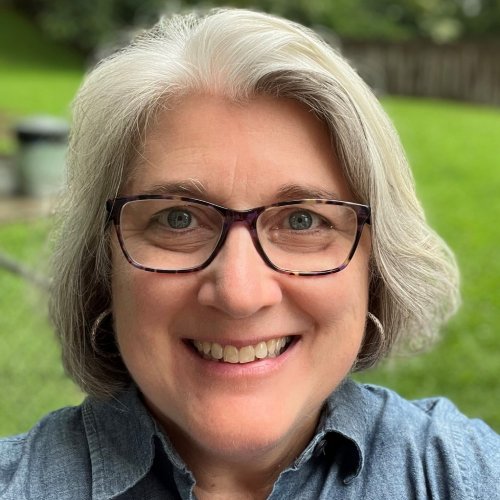Pharma manufacturing effort could bring $1.2 billion to region over 5 years, CABI reports
- October 4, 2024
- By Suzanne Koziatek
- 3 minute read

A public-private regional partnership to boost drug manufacturing in the U.S. could add $1.2 billion to the St. Louis regional economy over the next five years, according to an analysis by WashU Olin’s Center for Analytics and Business Insights (CABI).
The effort to reshore production of active pharmaceutical ingredients (APIs) is led by the API Innovation Center, a nonprofit coalition founded by CABI’s senior research advisor Tony Sardella. His previous research exposed the root causes of critical drug shortages in the U.S., highlighting the risks of relying on overseas manufacturers.
The center has brought together manufacturers, government entities, and university resources to address the challenge by investing in improved pharmaceutical manufacturing technologies in the St. Louis region.
Thanks to the group’s efforts, six new APIs (the principal active ingredients in drugs) are currently in development, bringing an estimated $306 million to the regional economy, according to the CABI report. This estimate includes the direct effects of job creation from the APIs and the resulting generic drugs—as well as the ripple effects of those jobs throughout the regional economy.
The mid-term goal for the center is to add 19 more medicines in five years, adding $1.2 billion to the region. The long-term goal would increase that list to 350 medicines, for an estimated economic impact of $17.85 billion.
This is a truly transformational opportunity for our region, for our state, and for our country.
Michael Wall
The findings were announced at a September 25 forum at WashU Olin cosponsored by CABI and the API Innovation Center.
“The business model that we’ve deployed addresses one of the root causes of US drug shortages—the economic viability of manufacturing in the U.S.,” Sardella said. “The novel private-public partnership model invests in research and new advanced manufacturing development, signs contracts with the existing US manufacturing base, and partners with healthcare systems and pharmacy retailers to create a stable and resilient supply chain.
“It is often referred to as the ‘Missouri Model,’ at a national level,” he said. “It’s shown some great promise and effect, thus far, and on top of economic benefit, there’s the patient benefit—stability of price, certainty of supply.”
The API Innovation Center’s model has shown such promise that it has received funding from both the state of Missouri and the U.S. Department of Health and Human Services, which recently announced a $14 million grant to the center to produce three APIs used to treat asthma, diabetes, and anxiety disorders.
That federal grant has an impact beyond dollars and cents; it also promotes St. Louis and Missouri as a hub of advanced manufacturing technology, said Michael Wall, co-director of CABI and Olin professor of practice in marketing and entrepreneurship.
The grant, "which was signed by the Office of the President of the United States, puts St. Louis right there, front and center. That’s brand awareness,” Wall said.
At the September 25 forum, panelists focused on the workforce implications of the API project, which is expected to create 125 skilled, well-paid jobs. One goal of the coalition is to partner with regional organizations to ensure a diverse, well-trained workforce that is ready to fill those positions, as well as the cascade of regional jobs that could result from growth in the pharma industry.Bringing pharma production home to Missouri
The API Innovation Center and CABI convened government, business, and nonprofits to discuss efforts to reshore API production in the region.


Media inquiries
For assistance with media inquiries and to find faculty experts, please contact Washington University Marketing & Communications.
Monday–Friday, 8:30 to 5 p.m.
Sara Savat
Senior News Director, Business and Social Sciences
